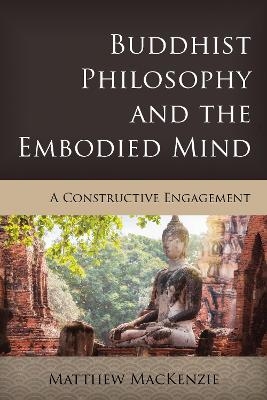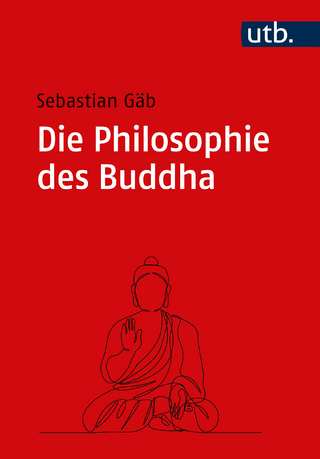
Buddhist Philosophy and the Embodied Mind
Rowman & Littlefield (Verlag)
978-1-5381-6014-5 (ISBN)
In the last 30 years, embodied, embedded, enactive, and extended (4E) accounts of mind and experience have flourished. A more cosmopolitan and pluralistic approach to the philosophy of mind has also emerged, drawing on analytic, phenomenological, pragmatist, and non-Western sources and traditions. This is the first book to fully engages the 4E approach and Buddhist philosophy, drawing on and integrating the intersection of enactivism and Buddhist thought.
This book deepens and extends the dialogue between Buddhist philosophy and 4E philosophy of mind and phenomenology. It engages with core issues in the philosophy of mind broadly construed in and through the dialogue between Buddhism and enactivism. Indian philosophers developed and defended philosophically sophisticated and phenomenologically rich accounts of mind, self, cognition, perception, embodiment, and more. As a work of cross-cultural philosophy, the book investigates the nature of mind and experience in dialogue with Indian and Western thinkers. On the basis of this cross-traditional dialogue, the book articulates and defends a dynamic, non-substantialist, and embodied account of experience, subjectivity, and self.
Matthew MacKenzie is professor of philosophy at Colorado State University. MacKenzie specializes in Buddhist and Indian philosophy, philosophy of mind, and metaphysics. His research takes a cross-cultural, interdisciplinary approach to questions of consciousness, selfhood, and embodiment.
Acknowledgements
Introduction
On Comparative Philosophy
Overview of the Chapters
Enacting Selves
No-Self
Buddhist Reductionism
Four Problems for Buddhist Reductionism
The Dependent Origination of Sentient Beings
Sentience and Subjectivity
Subjectivity and Self
Self-Making
Conclusion
Luminosity
Luminosity
Self-Luminosity and Other-Luminosity
Dual-Aspect Reflexivism
Temporality
Dynamic Embodied Nondual Awareness
Agency and Other Minds
Karma
Agentless Agency
Enactive Agency
Psychological Agency
Other Minds
Conclusion
Enacting Worlds
The Co-Emergence of Self and World
Enacting Worlds
Enaction, Emptiness, and Realism
The Three Natures of Phenomena
Cultivating Compassion
The Saṃsāric Framework
Bodhicitta, Empathy, and Open Intersubjectivity
Meditative Concentration
The Four Point Mind Training
Equality of Self and Other
The Limits of Self-Cherishing
The Benefits of Altruism
Exchange of Self and Other
Conclusion
Bibliography
| Erscheinungsdatum | 02.04.2024 |
|---|---|
| Verlagsort | Lanham, MD |
| Sprache | englisch |
| Maße | 151 x 230 mm |
| Gewicht | 308 g |
| Themenwelt | Geisteswissenschaften ► Philosophie ► Östliche Philosophie |
| Geisteswissenschaften ► Philosophie ► Philosophie der Neuzeit | |
| Geisteswissenschaften ► Religion / Theologie ► Buddhismus | |
| ISBN-10 | 1-5381-6014-5 / 1538160145 |
| ISBN-13 | 978-1-5381-6014-5 / 9781538160145 |
| Zustand | Neuware |
| Informationen gemäß Produktsicherheitsverordnung (GPSR) | |
| Haben Sie eine Frage zum Produkt? |
aus dem Bereich


